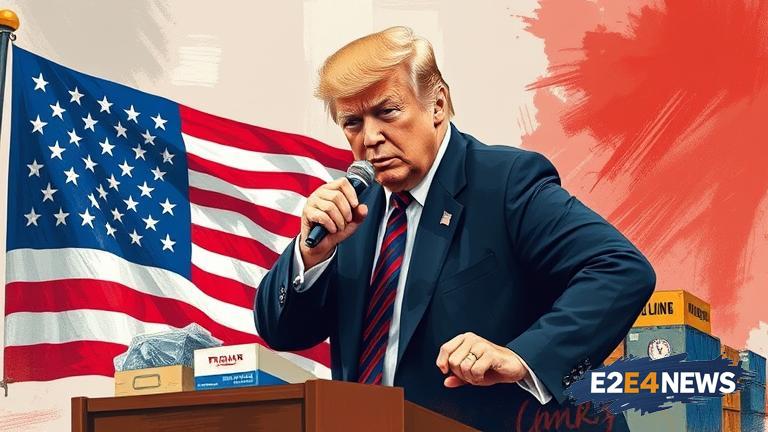The trade war between the United States and its major trading partners has taken a significant turn with the imposition of 30% tariffs on imports from the European Union and Mexico. This move, announced by President Donald Trump, is set to come into effect on August 1. The tariffs are expected to have far-reaching consequences for the global economy, with potential impacts on trade balances, economic growth, and consumer prices. The EU and Mexico have been vocal about their opposition to these tariffs, with the EU threatening to retaliate with its own set of tariffs on US goods. The trade tensions between the US and its trading partners have been escalating over the past year, with the US imposing tariffs on steel and aluminum imports from several countries, including the EU, Canada, and Mexico. The EU has responded by imposing its own tariffs on US goods such as bourbon whiskey, Harley-Davidson motorcycles, and blue jeans. The trade war has also led to a decline in trade between the US and China, with both countries imposing tariffs on each other’s goods. The US has accused China of unfair trade practices, including theft of intellectual property and forced technology transfer. The trade war has had significant implications for businesses and consumers in the US, with many companies facing increased costs and reduced demand for their products. The tariffs have also led to a decline in the stock market, with investors becoming increasingly cautious about the impact of the trade war on the global economy. Despite the opposition from its trading partners, the US has continued to pursue its protectionist trade policies, with President Trump arguing that they are necessary to protect American industries and jobs. However, many economists have argued that the tariffs will ultimately harm the US economy, by increasing costs for consumers and reducing demand for US goods. The EU and Mexico have also argued that the tariffs are unfair and violate international trade rules. The World Trade Organization (WTO) has been criticized for its inability to prevent the trade war, with many countries calling for reforms to the global trade system. The trade war has also led to a decline in international cooperation, with many countries becoming increasingly protectionist in their trade policies. As the trade war continues to escalate, it remains to be seen how the global economy will be impacted, and what the long-term consequences will be for businesses, consumers, and governments around the world.
